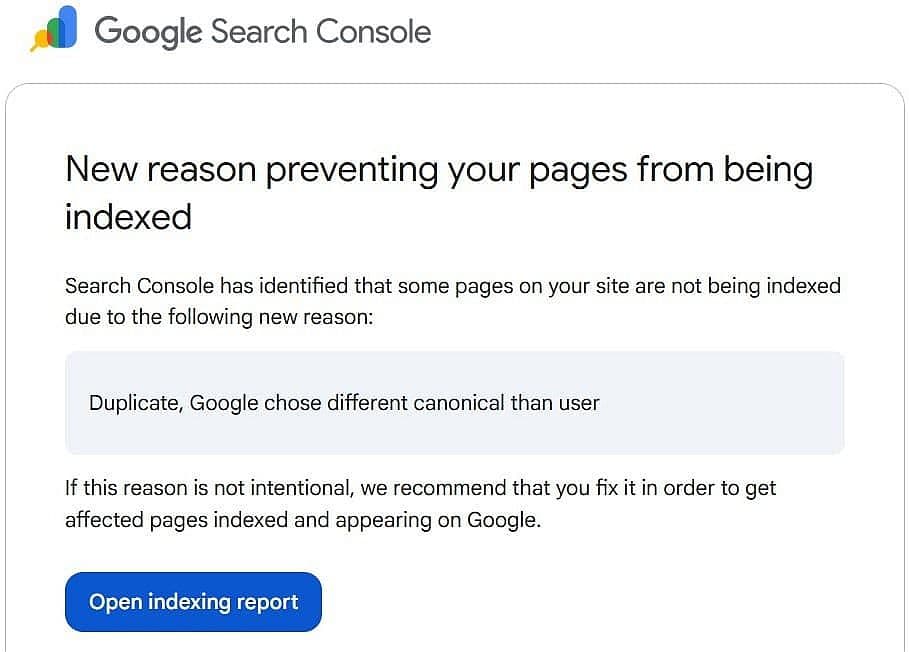
My Google Search Console sitemap fix journey has been a 5-day nightmare. What started as occasional frustration in Part 3 turned into constant “Couldn’t fetch” errors that nearly broke my spirit. Here’s the real story of how a clueless rookie and his highly paid AI sidekick finally beat Google’s own bug.
Full disclosure: During all this confusion and troubleshooting, I sorta lost track of time. What I describe as “24 hours” might have been overnight, and “several days” might have been one or two days. Technical problems have a way of warping your sense of time when you’re in the thick of it.
Let me be honest about something: Google Search Console sitemap troubleshooting has been my biggest challenge since Part 3 of this series. While I was celebrating climbing RankMath scores and learning SEO optimization, GSC was quietly driving me insane in the background.
This is the story of my Google Search Console sitemap troubleshooting nightmare – and how persistence, systematic detective work, and a bit of luck finally solved it.
Google Search Console Sitemap Fix: The Timeline
Here’s the real chronology of my Google Search Console struggles:
July 28, 2025: Installed RankMath, published Part 1 (71/100 score)
July 30: Asked my AI sidekick about “Google stuff.” Smart response: “Skip Search Console for now. Connect in two weeks after optimizing posts.”
August 1: Published Part 3, where I wrote: “Following Part 2’s plan, I connected Google Search Console expecting helpful insights.”
That’s when the GSC humbling began. The interface was overwhelming, the data was confusing, and I had no idea what I was looking at.
August 3: The “Couldn’t fetch” nightmare officially started. Every sitemap submission to Google Search Console failed instantly.
August 6: Published Part 6 (83/100 score) while still fighting the GSC sitemap battle.
So while my RankMath scores were climbing (71 → 73 → 77 → 74 → 79 → 83), Google Search Console was my constant thorn.
Google Search Console Sitemap Troubleshooting Begins
Starting August 3rd, every single sitemap submission to Google Search Console failed. At first, submissions would process for about 24 hours before showing “Couldn’t fetch.” But after a few attempts, Google started rejecting them instantly.
I’d submit index.php/sitemap_index.xml and within seconds, Google would slap me with that red error message. It felt personal.
Meanwhile, everything else was working:
- My Independent Analytics showed steady traffic (29 visits)
- RankMath scores kept improving
- Pages were getting indexed fine
- My sitemaps generated properly (198 URLs!)
But those GSC sitemap submissions? Dead on arrival.
Google Search Console Sitemap Fix: Detective Work with My AI Sidekick
As a self-proclaimed rookie with zero technical knowledge, I needed serious hand-holding through this troubleshooting nightmare. Here’s where my highly paid AI sidekick (yes, I pay Claude $20/month and it’s worth every penny) stepped in.
First Reality Check: Were My Sitemaps Actually Broken?
We tested the obvious stuff:
- My sitemap URLs loaded perfectly in browsers
- RankMath was generating 198 URLs correctly
- The XML structure looked clean
- All content was included properly
External Verification Test
My sidekick suggested using httpstatus.io to test sitemap accessibility from external servers. Result: Perfect 200 status codes.
The sitemaps existed, they worked, and they were publicly accessible. So why couldn’t Google fetch them?
Google Search Console Sitemap Fix: Plugin Conflict Discovery
After several days of head-scratching, we discovered something crucial hiding in my website’s HTML source code:
<meta name="google-site-verification" content="om8DpsgsIFleCCMcRz8Cd
K93CeIdxLBoW5vcnbF5piU" />
The smoking gun: I had two plugins trying to connect to Google Search Console simultaneously:
- Site Kit:Connected to GSC for analytics data
- RankMath:Had its own GSC verification code in Webmaster Tools
Google was getting confused about which plugin was “authorized” to communicate with my site.
The First Success That Didn’t Last
We removed RankMath’s verification code, letting Site Kit handle all Google communication. The theory was solid: eliminate the conflict, eliminate the problem.
Result: I got “Sitemap submitted successfully” instead of instant rejection!
Victory dance time, right?
Wrong.
This initial success quickly reverted to “Couldn’t fetch.” This was different from our final breakthrough on August 6th morning.
Google Search Console Sitemap Fix: Nuclear Troubleshooting
After several days of systematic troubleshooting, we’d tried everything a reasonable rookie should attempt:
- ✅ Fixed plugin conflicts
- ✅ Cleared Hostinger server caches multiple times
- ✅ Regenerated sitemaps completely (the nuclear reset)
- ✅ Flushed WordPress permalinks
- ✅ Checked robots.txt (it was perfect)
- ✅ Deactivated and reactivated RankMath entirely
- ✅ Changed sitemap settings multiple times
My sidekick even guided me through a complete “nuclear reset”:
- Disabled all sitemap generation in RankMath
- Cleared all server caches
- Re-enabled sitemaps to force fresh generation
- The timestamps were STILL showing old August 3-4 dates
Those sitemaps were like digital cockroaches – they survived every troubleshooting attempt we threw at them.
The Breakthrough: Google’s Own Bug
Frustrated and running out of options, I kept searching for answers and found a Google support community discussion where other website owners were experiencing the exact same “Couldn’t fetch” errors with perfectly valid sitemaps.
I shared this discovery with my AI sidekick to analyze.
The revelation: This wasn’t my fault. This was Google’s bug.
The community thread confirmed what we’d suspected – sometimes Google Search Console just can’t fetch sitemaps that are working perfectly fine. It’s a known glitch that affects valid sitemaps with correct headers and structure.
Google Search Console Sitemap Fix: The Different Approach That Worked
Armed with this knowledge, we decided to try one last desperate measure: completely different sitemap files.
Instead of trying to fix RankMath’s stubborn sitemaps, we installed a completely different plugin: XML Sitemap Generator for Google.
The Process:
- Deactivated RankMath temporarily
- Activated the new sitemap plugin
- Generated fresh sitemaps with different URLs and formats
- Submitted
sitemap.xml(the new format) to Google Search Console
August 6, 2025 Morning – The Final Breakthrough
That beautiful green “Success” status finally appeared in my GSC dashboard on the morning of August 6th. After days of red “Couldn’t fetch” errors, Google successfully fetched and processed the completely different sitemap format.
This success stayed green – unlike our earlier attempt that quickly failed.
Current Status:
- ✅ Green “Success” status for our main sitemap (as of August 6th morning)
- ✅ 6 pages discovered and being indexed
- ✅ Fresh August 6 timestamps
- ✅ Normal GSC data flow restored
(Note: Google later sent a separate RSS sitemap “Couldn’t fetch” on August 7th, but that’s a different issue from our main sitemap victory)
What This Rookie Actually Learned
Sometimes it really isn’t your fault. Google Search Console has bugs, and even when you do everything right, their systems can fail to fetch perfectly valid sitemaps.
Systematic troubleshooting matters. Without my AI sidekick’s methodical approach, I would have given up after the first few failures. Having guided, step-by-step troubleshooting made the difference between success and surrender.
Different approaches work when technical fixes don’t. When fixing the problem doesn’t work, sometimes you need to completely sidestep it with alternative solutions.
Documentation helps. Writing about this troubleshooting process as it happened gave us a clear record of what we tried and what didn’t work (even if I did lose track of time during the chaos!).
The Ironic Timing
While we were fighting the sitemap battle, Google Search Console sent me a detailed indexing report on August 6th. As a rookie, I had no clue what this data meant, so I turned it over to my AI sidekick to decipher. The report showed:

- 268 pages excluded by ‘noindex’ tag
- 51 pages with redirects
- 46 pages returning 404 errors
- Duplicate canonical issues to address
The tool I was trying to fix was simultaneously giving me actionable SEO data to improve my site. Sometimes technology has a sense of humor.
For Fellow DIY SEO Rookies
If you’re facing similar Google Search Console sitemap issues, here’s what our troubleshooting process revealed:
Verify it’s not your website first:
- Test sitemap URLs in browsers (they should load clean XML)
- Use external tools like httpstatus.io to check server responses
- Confirm your robots.txt isn’t blocking sitemaps
- Check for plugin conflicts, especially multiple Google integrations
If technical fixes don’t work:
- Search Google’s support community for similar issues
- Try different sitemap plugins or formats
- Don’t assume you’re doing something wrong
- Document your process (you might help others later)
Remember: Your site can perform well even with GSC sitemap issues. My RankMath scores kept climbing and traffic kept growing while GSC was broken. Focus on creating good content and optimizing what you can control, as explained in RankMath’s official documentation.
My RankMath SEO Series Progress:
- Part 1: From SEO Confusion to DIY SEO Optimization Success – 71/100
- Part 2: My DIY SEO Journey: Setting Up Rank Math – 73/100
- Part 3: Fix Something, Break Something: My DIY Reality Check – 77/100
- Part 4: RankMath Free Features Deep Dive: What You Actually Get – 74/100
- Part 5: Manual SEO Optimization: Novice Steps to Pro Results – 79/100
- Part 6: WordPress 404 Monitor + Redirections = Clean Site – 83/100
The DIY SEO journey continues – now with working Google Search Console sitemaps and the hard-earned confidence that comes from surviving your first major technical crisis.
Sometimes being a rookie means getting lucky. But systematic troubleshooting with good guidance turns luck into repeatable problem-solving skills.
